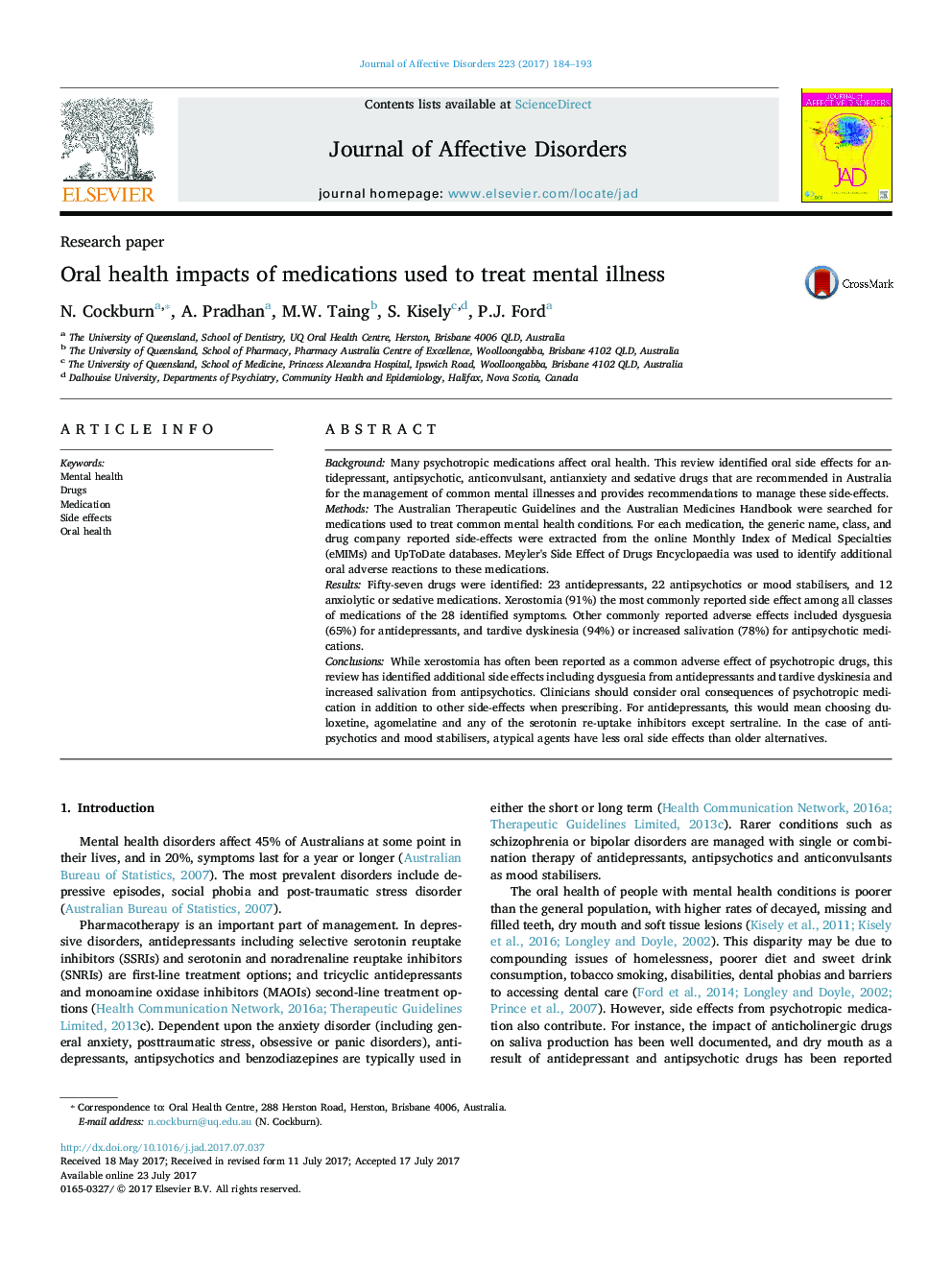| کد مقاله | کد نشریه | سال انتشار | مقاله انگلیسی | نسخه تمام متن |
|---|---|---|---|---|
| 5721809 | 1608102 | 2017 | 10 صفحه PDF | دانلود رایگان |
- Xerostomia was the most prevalent oral side effect of common psychotropic drugs.
- Side effects of common psychotropic drugs can increase the risk of dental diseases.
- To manage side effects, physicians should work with dental practitioners, pharmacists, and other allied health professionals.
- Clinicians should also take into account the side-effect profiles when choosing an agent.
- Atypical antipsychotics and mood stabilisers agents have less oral side effects than older alternatives.
BackgroundMany psychotropic medications affect oral health. This review identified oral side effects for antidepressant, antipsychotic, anticonvulsant, antianxiety and sedative drugs that are recommended in Australia for the management of common mental illnesses and provides recommendations to manage these side-effects.MethodsThe Australian Therapeutic Guidelines and the Australian Medicines Handbook were searched for medications used to treat common mental health conditions. For each medication, the generic name, class, and drug company reported side-effects were extracted from the online Monthly Index of Medical Specialties (eMIMs) and UpToDate databases. Meyler's Side Effect of Drugs Encyclopaedia was used to identify additional oral adverse reactions to these medications.ResultsFifty-seven drugs were identified: 23 antidepressants, 22 antipsychotics or mood stabilisers, and 12 anxiolytic or sedative medications. Xerostomia (91%) the most commonly reported side effect among all classes of medications of the 28 identified symptoms. Other commonly reported adverse effects included dysguesia (65%) for antidepressants, and tardive dyskinesia (94%) or increased salivation (78%) for antipsychotic medications.ConclusionsWhile xerostomia has often been reported as a common adverse effect of psychotropic drugs, this review has identified additional side effects including dysguesia from antidepressants and tardive dyskinesia and increased salivation from antipsychotics. Clinicians should consider oral consequences of psychotropic medication in addition to other side-effects when prescribing. For antidepressants, this would mean choosing duloxetine, agomelatine and any of the serotonin re-uptake inhibitors except sertraline. In the case of antipsychotics and mood stabilisers, atypical agents have less oral side effects than older alternatives.
Journal: Journal of Affective Disorders - Volume 223, 1 December 2017, Pages 184-193
